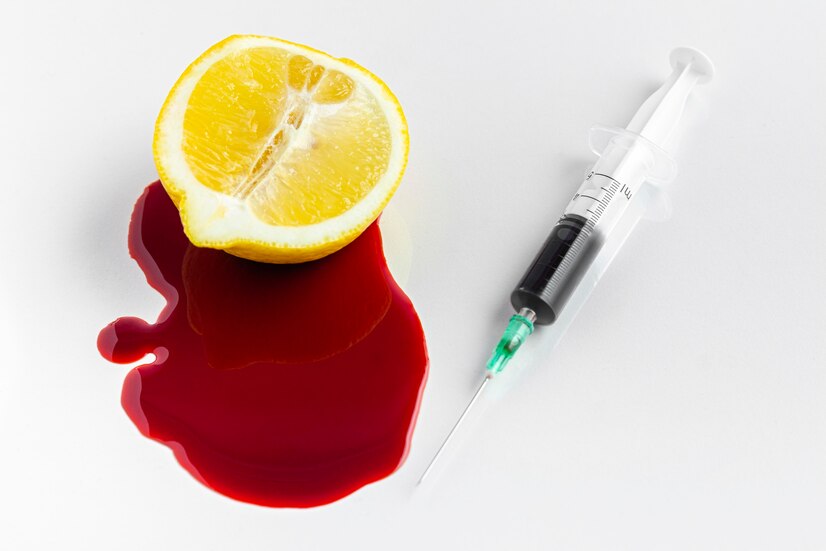Plasma donation is a noble act that can save lives, but did you know that what to eat before donating plasma can significantly impact your donation experience? Proper nutrition plays a crucial role in ensuring a successful and comfortable plasma donation process. In this article, we’ll explore the importance of pre-donation nutrition and provide you with essential guidelines on what to eat before heading to the donation center.
Why is Pre-Donation Nutrition Important?
Before delving into specific dietary recommendations, it’s essential to understand why pre-donation nutrition matters. When you donate plasma, your body undergoes a process where plasma is separated from your blood, with the remaining components returned to your body.
Fuel Your Good Deed: What to Eat
To ensure a smooth and successful plasma donation experience, consider the following dietary guidelines:
Hydrating with Water Staying adequately hydrated before donating plasma is crucial for ensuring a smooth and successful donation experience. Water plays a vital role in maintaining blood volume, which is essential for the donation process. Aim to drink at least eight glasses of water throughout the day leading up to your donation to stay hydrated. Avoid excessive caffeine and sugary beverages, as they can lead to dehydration. Prioritizing hydration not only supports the donation process but also promotes overall health and well-being.
Consuming Lean Proteins Incorporating lean proteins into your pre-donation meals is important for maintaining muscle mass and replenishing protein lost during donation. Choose options like chicken, fish, tofu, or beans, which provide high-quality protein without excess saturated fat. Including lean proteins in your diet before donating plasma supports overall health and helps prepare your body for a successful donation experience.
Incorporating Healthy Carbohydrates Opt for complex carbohydrates like whole grains, oats, and brown rice. These provide a sustained release of energy and help stabilize blood sugar levels, preventing energy crashes during donation. It’s important to note that while carbohydrates are an essential source of energy, not all sources are created equal. Avoid refined carbohydrates and sugary snacks, such as white bread, pastries, and sugary drinks, which can cause rapid spikes in blood sugar followed by energy crashes. Instead, focus on whole, minimally processed carbohydrates that provide sustained energy and nutritional benefits.
Including Nutrient-Rich Fruits and Vegetables Load up on fruits and vegetables rich in vitamins and minerals, such as spinach, kale, berries, and citrus fruits. These nutrient powerhouses support overall health and immune function. Furthermore, the dietary fiber found in fruits and vegetables supports digestive health by promoting regularity and preventing constipation. Fiber-rich foods like apples, bananas, and leafy greens help keep your digestive system running smoothly, which can be especially beneficial before donating plasma to minimize any gastrointestinal discomfort during the process.
Avoiding Fatty and Processed Foods Steer clear of greasy, fatty foods and highly processed snacks before donating plasma. These can lead to digestive discomfort and may affect the quality of your donation. By avoiding fatty and processed foods and prioritizing nutritious, whole foods, you not only optimize your body’s readiness for plasma donation but also contribute to your long-term health and well-being. Making mindful dietary choices not only benefits you but also enhances your ability to make a positive impact through plasma donation.
Tips for Eating Before Donating Plasma
- Eat a balanced meal containing a combination of protein, carbohydrates, and healthy fats.
- Avoid heavy meals immediately before donation to prevent nausea or indigestion.
- Snack on easily digestible foods like nuts, yogurt, or whole-grain crackers in the hours leading up to your donation.
Conclusion
By fueling your body with the right nutrients before donating plasma, you not only ensure a successful donation process but also contribute to your own health and well-being. Remember to hydrate adequately, consume balanced meals, and avoid foods that may cause discomfort. Your good deed of plasma donation has the power to save lives and make a significant difference in the world.
FAQs
Can I eat before donating plasma?
Yes, it’s essential to eat a nutritious meal before donating plasma to maintain your energy levels and ensure a successful donation.
What should I avoid eating before plasma donation?
Avoid fatty, greasy foods, as well as excessive caffeine and sugary snacks. These can lead to discomfort during the donation process.
How soon before donating plasma should I eat?
Aim to eat a balanced meal 1-2 hours before your scheduled donation time. Avoid heavy meals immediately before donation to prevent digestive issues.
Is it okay to drink coffee before donating plasma?
While moderate caffeine intake is generally fine, excessive caffeine can lead to dehydration. Opt for water or herbal tea as hydrating alternatives.
Can I donate plasma if I have dietary restrictions?
It’s important to disclose any dietary restrictions or medical conditions to the staff at the donation center. They can provide guidance on how to prepare for donation safely.
What if I feel lightheaded or dizzy after donating plasma?
If you experience lightheadedness or dizziness after donation, lie down with your feet elevated and drink plenty of fluids. If symptoms persist, seek medical attention.







